FFJ RESEARCH STATEMENT
Les FFJ Research Statement, une collection rassemblant les contributions des chercheurs invités et des chercheurs associés de la FFJ, ont deux objectifs principaux. C’est à la fois un moyen de promouvoir les recherches de nos invités auprès des autres chercheurs de l’EHESS, mais également, par leur format à visée pédagogique, un moyen de faire découvrir à un public plus large, la diversité des études sur le Japon et l’Asie.
| Brieuc MONFORT 2024/06/18 Aging and Economics: A French-Japanese Perspective |
 |
Lire la suite
| Beatriz FERNANDEZ 2024/05/17 Pourquoi prendre en compte les évolutions socio-économiques pour imaginer les mobilités urbaines de demain ? |
 |
Lire la suite
| Suzanne PEYRARD 2024/04/16 Exploring the Role of ICTs in Urban Governance: an analysis of the smart cities production in East Asia |
 |
Lire la suite
Lire la suite
| Akiko SAKANISHI 2023/6/22 Changes in family formation and urban structure: A comparison between French and Japanese metropolitan areas |
 |
Lire la suite
| Yuki TADA 2023/6/1 The paradox of debt and Minsky cycle: Nonlinear effects of debt and capital, and variety of capitalism |
 |
Lire la suite
| Nobuko KAWASHIMA 2023/6/1 Sustainable Cultural Futures: COVID-19 and Re-setting Cultural Policy |
 |
Lire la suite
| Kayo Takuma 2023/1/19 Regional Health Cooperation in Multi-Layered Health Governance: A Comparative Study of Pandemic Preparedness and Response Efforts in the EU and Asia |
 |
Lire la suite
| Nanako Inaba 2022/11/18 Social movements against social exclusion in the era of Neoliberalism |
 |
Lire la suite
| Yuki Kubo Tanaka 2022/07/21 The consequences of corporate ESG disclosure |
 |
Lire la suite
| Thị Ngọc Tú LÊ 2022/07/21 The HoChiMinh City- Urban Mobility and gender-sensitive analysis |
 |
Lire la suite
| Saori N. KATADA 2022/07/20 Japanese Style Financialization: Its Impact on Monetary Policy and Infrastructure Investment |
 |
Lire la suite
| Ken SATOH 2022/06/15 Compliance Check of Norms for Algorithmic Law |
 |
Lire la suite
| Keisuke Mamehara 2022/05/05 Comparative study of the history of energy policy in France and Japan |
 |
Lire la suite
| Fabio Gygi 2022/04/25 ROBOTS IN THE WILD - An Ethnography of Robot-Human Interactions outside the Laboratory |
 |
Lire la suite
| Hugh Whittaker 2022/03/09 Building a New Economy: Japan’s Digital and Green Economic Transformations |
 |
Lire la suite
| Andrés Borthagaray 2021/11/30 A new approach for public spaces of mobility in world metropolises: design, management and governance for a social and post-pandemic transition |
 |
Lire la suite
| Pierre Siklos 2021/09/23 The Missing Link(s)? Fiscal, Demographic, and Global Forces, and Their Interactions with Monetary Policy: Japan Over the Last Three Decades |
 |
Lire la suite
| Marion Lagadic 2021/03/20 Bridging gender contracts and urban policies: exploring the concept of ‘gender cycling contract’ in the Greater Tokyo area |
 |
Lire la suite
| Kazunobu Oyama 2021/04/01 Japanese leadership in the case of the Fukushima nuclear accident |
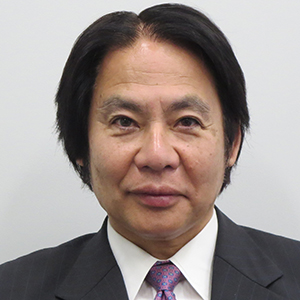 |
Lire la suite
| Koichiro Eto 2021/02/10 A Study of Cognitive Differences between Europe and Japan on Artificial Intelligence-Generated Creations |
 |
Lire la suite
| Meriç Kirmizi 2021/01/26 The Crisis of the Contemporary City: Socio-Economic Effects of Commercial, Residential and Mobility Changes |
 |
Lire la suite
| Kota Kodama 2021/01/13 A comparative study of Japanese, US, and French regulation and social system of AI used in medicine |
 |
Lire la suite
| Kulacha Sirikhan 2020/11/09 Potentials and Challenges of the connected autonomous shared electric vehicle (CASE) from urban geography perspectivein Southeast Asia Megacities |
 |
Lire la suite
| Mari Uchiumi Depopulation and sustainable maintenance of urban functions: Focusing on wide area cooperation and coordination in the Japanese and French urban planning systems |
 |
Lire la suite
| Willem Thorbecke 2021/03 The Exposure of European and East Asian Firms to the COVID-19 Pandemic and to Exchange Rates: Evidence from the Stock Market |
 |
Lire la suite
| Eiichi Taniguchi 2020/09/11 City logistics for sustainable and liveable cities |
 |
Lire la suite
| Ritsu Yamamura 2020/02/26 Comparative Study of Social Policy for People with Disabilities: Positioning of Japan between Two Types of Policy Framework, Trend and Movement |
Lire la suite
| Haruki Sawamura 2019/09/04 Frontier of connectivity technologies and human intervention in mobility service sector in Europe and in Japan |
 |
Lire la suite
| Tatsuyoshi Okimoto 2019/08/20 Empirical Assessment of Unconventional Monetary Policies |
 |
Lire la suite
| Makiko SAKAI 10/04/2019 Small-scale Economic Activities and Self-help Mechanisms in African Rural Societies |
 |
Lire la suite
| Kulacha SIRIKHAN 15/02/2019 Institutional Building in the Decentralized Territorial Policies Approach on Clustering of Creative Industries |
 |
Lire la suite
| James WRIGHT 17/01/2019 Success and Failure of Public Innovation Policies in Japan: A Case Study of Care Robots |
 |
Lire la suite
| Naoko ABE 12/12/2018 Cross-cultural Studies (France and Japan) and Multidisciplinary Discussion on Artificial Intelligence and Robotics |
 |
Lire la suite
| Jeehoon KI 23/10/2018 Differences in Public Policy on Autonomous Cars in France, Japan, and Korea |
 |
Lire la suite
| Victoria MAK 31/08/2018 The influence of the Rise of Foreign Shareholders on Inter-Firm Alliances in Japan |
 |
Lire la suite
| André SORENSEN 21/08/2018 Tokaido Megalopolis: Developmental State Urbanism from Growth to Shrinkage |
 |
Lire la suite
| Soichiro MINAMI 03/08/2018 Local Government and Innovation for Sustainable mobility: Policy, Role and Means |
 |
Lire la suite
| Yasuhi HARA 24/07/2018 Binding of Gap: Science and Innovation |
 |
Lire la suite
| Shoichiro TAKEZAWA 06/06/2018 A Comparative Study on the Organic Agriculture in Japan and in France |
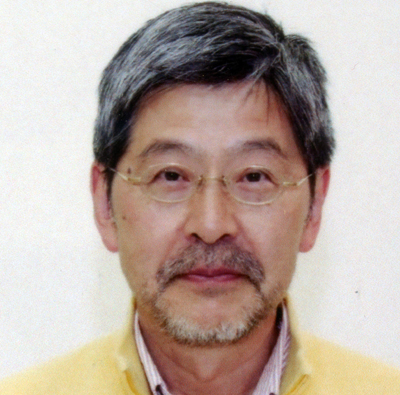 |
Lire la suite
| Scott WILBUR 24/04/2018 L’Économie politique des entreprises zombies |
 |
Lire la suite
| Ito PENG 04/04/2018 From Care Work and Migration to Care Economy in East and Southeast Asian Contexts |
 |
Lire la suite
| Trinh Hoang Anh NGUYEN 21/03/2018 Policy for the Energy Transition in ASEAN, with Lessons Learned from EU and Japan |
 |
Lire la suite
| Kristin SURAK 07/03/2018 Managing Temporary Labor Migration: Public-Private Partnerships in East Asia |
 |
Lire la suite
| Ayako SAIKI 20/12/2017 The relationship between unconventional monetary policy and income inequality: update |
 |
Lire la suite
| Yuka KAYANE 13/12/2017 Rising “un-civil” society groups?: Religious Intolerance in Contemporary Indonesia |
 |
Lire la suite
| Nobutaka KAMEI 07/12/2017 Anthropological Research on Sign Languages in French-Speaking West and Central Africa |
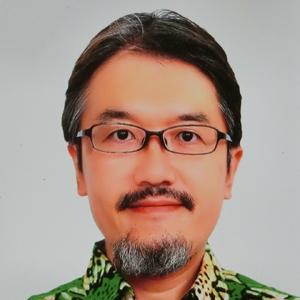 |
Lire la suite
| Toshiyuki MATSUURA 08/11/2017 How Do Japanese Manufacturing Firms React to the Surge of Imports from China? |
 |
Lire la suite
| Glenda ROBERTS 25/10/2017 Urban Salary women in Contemporary Japan: Models for a neo-liberal Japan? |
 |
Lire la suite
| Shiho NISHIYAMA 18/10/2017 Comparative Analysis of the Urban Governance in Divided Society and Social Innovations Created by Social Enterprises in Europe |
 |
Lire la suite
| Yukinobu KITAMURA 22/09/2017 Transferts intergénérationnels et fiscalité des successions au Japon |
 |
Lire la suite
| Francis D. KIM 30/08/2017 When Family Capitalism Meets Shareholder Activism: South Korea |
 |
Lire la suite
| Nam LEE 21/08/2017 Under what circumstances can a latecomer surge to be the global player? The Case of Samsung Electronics in Korea |
 |
Lire la suite
| Greg DE ST. MAURICE 18/07/2017 Cuisines nationales et frontières cuilinaires: une étude de cas sur la cuisine japonaise |
 |
Lire la suite
| Ai NISHIMURA 06/07/2017 Politique environnementale urbaine et aménagement du territoire pour la transformation de la mobilité |
 |
Lire la suite
| Oliviero FRATTOLILLO 21/06/2017 Dialogue dipolomatique nippo-européen dans une perspective historique |
 |
Lire la suite
| Kazuyuki MOTOHASHI 11/05/2017 New innovation policies in science based economy era: Empirical analysis by linked dataset of scientific papers, patents and firm level financial data |
 |
Lire la suite
| Toshiaki TANAKA 07/04/2017 A study of new technologies of personal mobility and robot suit for the elderly and persons with disabilities. |
 |
The aim of the present study is to investigate innovative technology for sustainable mobility, particularly scientific technology that could improve mobility for the elderly and disabled.
Lire la suite
| Ulrich VOLZ 03/02/2017 Japanese Monetary and Exchange Rate Policy and the Hollowing-out of Japanese Industry |
 |
This research project aims to investigate the effects of Japanese monetary and exchange rate policy on the hollowing out of the Japanese industrial sector in two ways: an econometric analysis using new data for industry‐specific real effective exchange rates to gauge the effects of yen fluctuations on the output and exports of different Japanese industries on the one hand, and a detailed investigation of the drivers behind the outsourcing of domestic manufacturing production from Japan to other parts of Asia and the role that the yen’s external value has played in the emergence of the regional trade production network.
Lire la suite
| Naoko ABE 24/01/2017 How can we understand the differences between France and Japan in the growth of shared mobility services? The paradox of trust and its social construction. |
 |
Lire la suite
| Sachiyo KANZAKI 09/01/2017 Concentration unipolaire à Tokyo et l’émergence du discours régionaliste du Kansaï |
 |
Lire la suite
| Takeki SUNAKAWA 07/12/2016 Implications of the effective lower bound on nominal interest rates in the Japanese economy |
 |
Lire la suite
| Miyako HAYAKAWA 21/10/2016 Enquête ethnographique sur le modèle familial des migrants japonais en France |
 |
Lire la suite
| Akira TAKEISHI 28/09/2016 Inter-firm Division of Labor in the Japanese Auto Industry at a Crossroads: Where Have Some (not All) Keiretsu Gone? |
 |
Lire la suite
| Hidetada HIGASHI 24/08/2016 Cognition, Resource Allocation, and Organizational Change of Automotive OEMs against the Innovative Power Train |
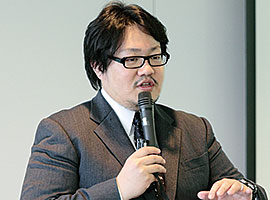 |
Lire la suite
| Sophie BUHNIK 13/04/2016 Métropole de l'endroit et métropole de l'envers. Décroissance urbaine, vieillissement et mobilités dans les périphéries de l'aire métropolitaine d'Osaka. |
 |
Lire la suite
| Brieuc MONFORT 16/03/2016 How relevant is Japan's economic experience to advanced economies? |
 |
Lire la suite
My doctoral research explores the evolution of disability policies, in a French-Japanese comparative perspective, focusing on the field of education. The fieldwork conducted in Japan has been made possible thanks to a JSPS fellowship.
Lire la suite
| Kashiko KODATE et Naonori KODATE 04/12/2015 Women in Science and Engineering |
 |
At Davos in January 2014, Prime Minister Abe stated that ‘Japan should be the place that gives women the opportunity to shine. Thirty per cent of leadership positions should be occupied by women by 2020’. Japan finally seo embrace an increasingly global and competitive environment.
Lire la suite
| Yuko UENO 01/10/2015 Formation process of Japanese consumers' inflation expectations |
 |
Lire la suite
| Anna K. SKARPELIS 24/08/2015 Japan in War and Empire: Challenges for Historical and Comparative Welfare State Research from mid-20th centuryJapanese Welfare State Development |
 |
Lire la suite
| Naoko HOSOKAWA 01/06/2015 |
 |
This study is concerned with the relation between language and national identity in contemporary Japan, in particular the manner in which visions of ‘Japaneseness’ are expressed and reproduced through the display of public attitudes (...)
Lire la suite
 |
|
My research looks at recent efforts in Japan to develop an industry at the technological frontier: in regenerative medicine. Japan offers a good case study to evaluate how institutional environments shape innovation in this sector, given substantial efforts made by Japanese government, industry and academia to alter existing institutional arrangements to advance. The regenerative medicines industry also offers a good forum to evaluate firms’ innovative capacities, because firms in this sector must innovate to survive.
Lire la suite
|
Hideko MAGARA
27/01/2015Economic Crises and Policy Regimes |
 |
Lire la suite
|
Helen MACNAUGHTAN, Peter MATANLE, Arjan KEIZER et Jun IMAI
|
|
Japan’s practice of so-called lifetime employment is well known. This system arose out of labour unrest in the early post-war years and was the result of both collective bargaining and recognition by bureaucratic and corporate leaders that Japan needed to secure a committed workforce and a stable labour market if it was to pursue long-term economic growth. (...)
|
 |
 |
 |
 |
Lire la suite
|
Kimiko TERAI
(12/09/2014) |
 |
Lire la suite
|
Yoshio HIGUCHI
(26/06/2014) |
 |
Lire la suite
| David CHIAVACCI (23/05/2014) Towards an Immigration State? Japan's Immigration Policy |
 |
Lire la suite
| Koichi NAKANO (11/04/2014) |
 |
Lire la suite
| Yoichi MINE (27/01/2014) Preventing violent conflict in Africa |
 |
Après la fin de la Guerre Froide, l’Afrique a été secouée par une série de violents conflits, dont le génocide du Rwanda, les terribles guerres civiles et tragédies humaines dans des pays comme la RDC, le Libéria, la Sierra Léone, la Côte d’Ivoire, la Somalie, le Soudan et d’autres régions du continent.
Lire la suite
| Franz WALDENBERGER (3/12/2013) EU-Japan relations – past, present and future |
 |
On March 25, the EU and Japan officially launched the start of negotiations for a free trade agreement (FTA). What can we expect? The answer to this question warrants an assessment of the evolution and present state of EU-Japan relations (...)
Lire la suite
| Yoshimichi SATO (11/11/2013) Persistent inequality between regular and non-regular workers in Japan |
 |
We observe the increase in the share of non-regular workers in the labor market in Japan. The percentage of female non-regular workers is over 50% as of 2010, and that of their male counterparts is approaching 20%. If there were no inequality between regular and non-regular workers, this increase would not cause any problem. However (...)
Lire la suite
|
Hitomi NAGANO
(14/10/2013) The Policies for People with Disabilities in France and Japan - Similarities and differences - |
 |
The policies for people with disabilities in France and Japan have experienced a very big change through the 2000s. The Council Directive 2000/78/EC which was enacted on 27 November 2000 established a general framework for equal treatment in employment and occupation (...).
Lire la suite
| Eiji YAMAMURA (16/09/2013) Globalization and labour market in SUMO wrestling |
 |
(...) To take an interesting example of Sumo labour market, here I attempt to explore impact of globalization in Japan. In general, Sumo wrestling is regarded as a traditional fighting sport in Japan and has been popular since the 18th century. Due to the national isolation policy, Sumo wrestlers consisted of Japanese. However, after World War II, Sumo has become globalized (...)
Lire la suite
| Tadashi YAGI (5/06/2013) The Essence of Creative Economy As Pink (2005) insisted in his book, our economy is moving from the “Information Age” to a “Conceptual Age” where creativity, innovation, empathy, and a holistic view will be rewarded with value gains in the market (...) |
 |
Lire la suite
| Sota KATO (26/03/2013) An Output Fall during Political-Economic Transition: The Case of Japan Why does an extensive reform of a national political-economic system invite temporary, and often substantial, loss of economic output? This question was initially raised in relation to the transition between capitalism and socialism/communism (...) |
 |
Lire la suite
| Masayo FUJIMOTO (12/02/2013) Is Japanese white collar workers' loyalty really high? : Comparison Among Japan, France and the United States In the mid-1980’s when the Japanese economy manifested significant growth, Western countries mocked Japanese businessmen who worked flat-out for their companies by calling them “worker bees". Initially, the concept of employees working self-sacrificingly for an organization was peculiar to Japan. (...)
|
 |
Lire la suite
| Yukiko FUKUSAKU (22/01/2013) |
 |
Expectations were that after Fukushima, Japan’s energy policy would change drastically and rapidly, but its reform has proceeded slowly despite its urgency in public policy agenda. This is in stark contrast to Germany which hammered out a detailed energy reform agenda including nuclear phase-out only a few months after Fukushima. (...) |
Lire la suite
| Jun SUZUKI (18/12/2012) Two faces of patent value - How can we evaluate the patent value and what affects it?
There is an ever-increasing concern for innovation also in Japan. Is Japan losing a part of its innovation capacity? |
 |
Lire la suite
|
Hiroshi TERUYAMA
Japan’s labor market and the rise in unemployment since 1990(27/10/ 2012) Unemployment is statistically defined as a situation in which persons are not in, can immediately engage in, and are seeking paid employment or self-employment. In Japan, the Ministry of Internal Affairs and Communication’s Labour Force Survey classifies the population aged 15 years and above into three categories(...) |
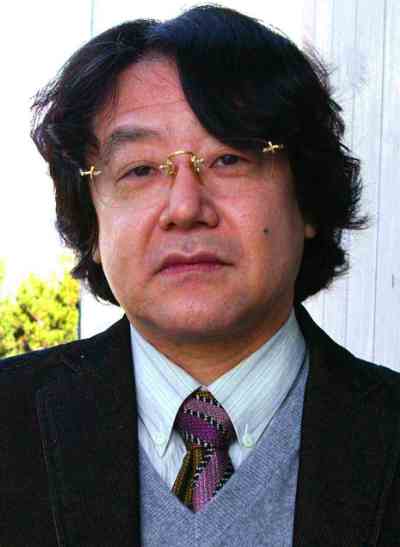 |
Lire la suite
|
Reinhard DRIFTE |
|
Japan's foreign policy seems to show two conflicting tendencies: On the one hand we find indications for an increasingly assertive policy, but at the same time there are signs of a weaker and less active policy. Among the indications for the former, one can mention Japan`s quest for a permanent UN Security Council seat, a stronger stance against China in the territorial conflict in the East China Sea, (...)
Lire la suite
| Masayasu NAGASHIMA (31/12/2011) Innovation and profitability problems in the Japanese electronics industry |
 |
|
The electronics industry is critical when considering Japan's competitiveness, because it has driven the Japanese economy, along with steel and automotive manufacturing, providing larger market opportunities and job creation (...)
|
Lire la suite
|
Philippe MOSSE
Comparing Hospitals and Nurses in Japan and France |
 |
|
Hospital systems throughout the developed world are undergoing waves of reform which seek to address multiple challenges of intensifying acuity, such as population ageing, technological advance, heightened expectations on the part of increasingly informed patients, the reduction of public spending deficits (...) |
Lire la suite
| Franz WALDENBERGER & Jens EILKER (22/09/2011) The Economic Impact of the Tohoku Earthquake |
 |
| On March 11, 2011 one of the strongest earthquakes ever measured occurred 130 km off the coast of Japan’s main island Honshu. Its intensity was 1,400 times stronger than that of the Kobe earthquake in 1995. The earthquake triggered a number of tsunami (...) |  |
Lire la suite
 Saadia PEKKANEN
Saadia PEKKANEN(15/06/2011)
Japan Invests in Asian Regionalism
The idea of Asian regionalism is in vogue, and has affected the tenor of Japan’s foreign economic policies. As the intra-regional trade shares of ten East Asian nations were estimated to be around 51 percent by the early 2000s, ahead of the NAFTA countries but behind the European Union ones, Asian economic regionalism seemed a fact in progress (...)
Lire la suite
 J.A.A. STOCKWIN
J.A.A. STOCKWIN(14/05/2011)
Stability and Instability in Japanese Politics: Explaining Prime Ministerial Turnover
For some years now, it has been common to analyse Japanese politics in terms of relative instability. I say “relative” because plainly there are important countries whose politics are far more unstable than the politics of Japan, but nevertheless in Japan there are significant indicators of instability (...)
Lire la suite
 Mary C. BRINTON
Mary C. BRINTON(17/04/2011)
Measures to Address Current Youth Labor Market Issues
“The crisis of youth” (wakamono kiki). This was the cover story in an issue of the Japanese news magazine Tōyō Keizai in early 2009. The magazine cover showed a grim-faced young Japanese man in a business suit. Inside the magazine, statistics and stories of Japanese young people’s difficult employment situation (...)
Lire la suite
 Takehiko KARIYA
Takehiko KARIYA(17/03/2011)
Can expanded opportunities of university education help Japanese youth transition to work?
The emergence of a global knowledge-based economy has given rise to drastic changes in both higher education and employment. On one hand, governments in advanced societies have launched policies to expand higher education to compete internationally in educating and attracting highly skilled workers. (...)
Lire la suite
 Claude MEYER
Claude MEYER(15/02/2011)
Les relations Chine-Japon.
Dialectique de la domination économique et de la puissance stratégique
En septembre 2010, il a suffi d’un incident naval apparemment mineur pour déclencher entre la Chine et le Japon une crise diplomatique aigüe avec suspension de contacts à haut niveau et embargo chinois sur les exportations de terres rares vers le Japon. Ces tensions récurrentes sur fond de contentieux historique (...)
Lire la suite
(15/01/2011)
Risky Business?: the discursive politics of ‘family risks’ in twenty-first century Japan
The Clash’s 1981 hit song, Should I Stay or Should I Go Now?, is about a troubled love affair. Or more precisely, the drive of the song stems from an acute dilemma: the anxiety and frustration involved in taking decisions about love. Should one continue or terminate a relationship? (...)
Lire la suite
 Yves TIBERGHIEN
Yves TIBERGHIEN(14/12/2010)
The Senkaku/Diaoyutai Crisis of September 2010: How could a fishing incident escalate to a full-blown frontal shock between great powers?
A little over a year ago, the coming to power of the Democratic Power of Japan (DPJ) signaled a big shift in Japan’s foreign policy and in East Asian relations. (...)
Lire la suite
 Cornelia STORZ
Cornelia STORZ(11/11/2010)
Innovation and Emergence of New Industries: Is the Silicon Valley Model the Only Way?
Japan seems to have lost its competitiveness in innovation. Its poor performance in the Global Entrepreneurship Monitor (a recognized industry measure) is offered as evidence of its obvious inability to give birth to new industries and has led to a growing pessimism about Japan’s competitiveness in the future. (...)
Lire la suite
 Hideaki MIYAJIMA
Hideaki MIYAJIMA (13/10/2010)
The Global Financial Crisis and the Evolution of Corporate Governance in Japan
Japanese corporate governance practices were not a direct cause of the current financial crisis, which was triggered by the subprime loan problem as exogenous shocks. However, the global financial crisis is expected to have a significant impact on the evolution of corporate governance. (...)
Lire la suite
 Naoki IKEGAMI
Naoki IKEGAMI(24/09/2010)
Why does France spend much more than Japan for its healthcare system for equivalent results?
France and Japan share many features in their health care systems. In financing, both are based on the social health insurance (SHI) model, with contributions from employers and employees, but also subsidized by taxes. In delivery, both are a mix of public and private providers, (...)
Lire la suite
 John C. CAMPBELL
John C. CAMPBELL(12/08/2010)
Towards an insurance for long-term care? What the French should learn from the Japanese, the German, and (a little less) from the American
Long-term care for frail older people is an increasingly significant policy issue in all advanced nations. Everywhere the number of old people who need assistance is increasingly rapidly, while social changes have decreased the ability of families to provide care on their own. (...)
Lire la suite
 Takahiro FUJIMOTO
Takahiro FUJIMOTO(12/07/2010)
The Future of the Japanese Industries: an approach in term of Design-Based Comparative Advantage
The US financial crisis hit Toyota and other Japanese firms that depended heavily on the US economic-bubble-driven exports, and yen was appreciated during the same period. (...)
Lire la suite
 Jun NISHIKAWA
Jun NISHIKAWA(25/06/2010)
« Richesse des Nations et Bien-Être des Individus ». Une vision japonaise
Lire la suite
Yuichiro MIZUMACHI
 (06/05/2010)
(06/05/2010)Le droit du travail au Japon: une clef du rapport salarial en transition
Le droit du travail japonais connaît une phase de transition depuis plusieurs années. Ainsi, par exemple, du point de vue du droit législatif, la loi du 12 mai 2004 a permis d’instaurer (...)
Lire la suite
Toru YOSHIDA
 29/03/2010
29/03/2010Retour sur l’alternance politique au Japon
Lire la suite

04/03/2010
Lire la suite
Keiichiro KOBAYASHI
 19/02/2010
19/02/2010The 1990s in Japan and Lessons for the Current Financial Crisis
Lire la suite









